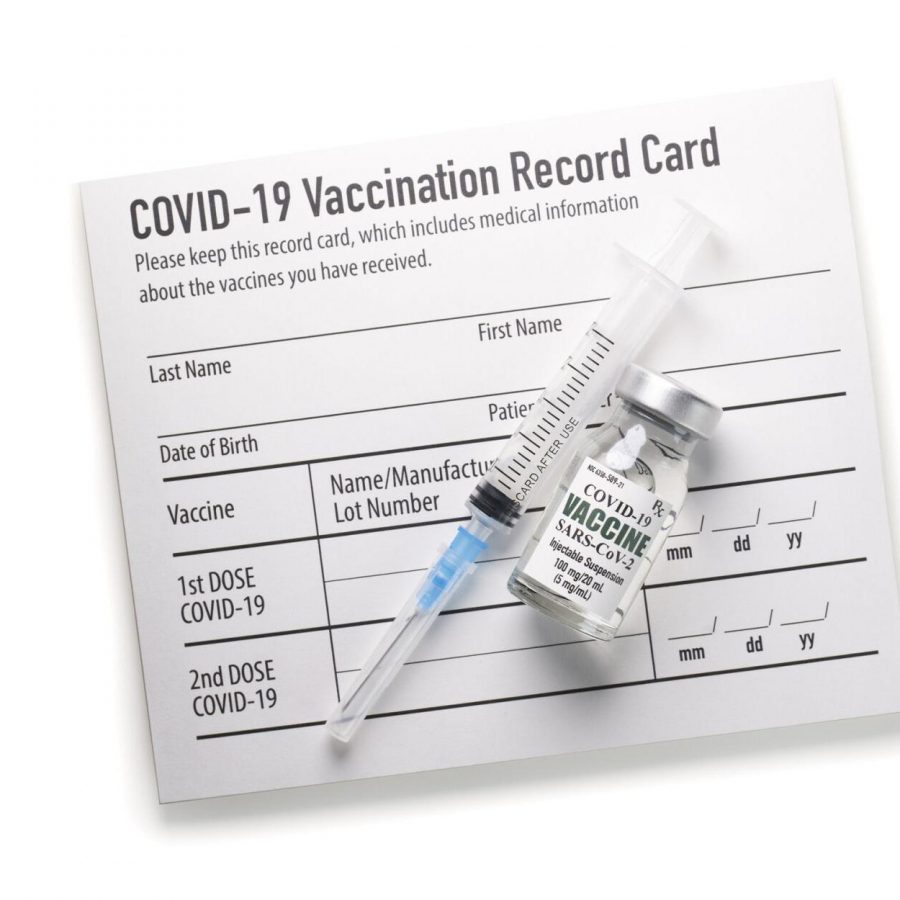Vaccine Identity Theft
COVID-19 vaccination record cards display the recipient’s full name and date of birth, which allows people to steal this information when pictures of the card are posted online.
February 20, 2021
With the COVID-19 vaccine becoming increasingly available, many people who have finally received it are posting pictures of themselves with their vaccination record cards on social media. These people have waited patiently for a vaccine throughout the pandemic and can finally boast about getting it to their friends and family. While receiving the vaccine is something to be excited about, posting about it can ultimately lead to identity theft.
When receiving both the first and second doses of the vaccine, recipients are given a vaccination record card. The card lists their full name, date of birth, and patient number. When people post a picture of their vaccination record cards, anyone who views the post has access to this information, and it is surprising how many people are willing to steal the information. Madison Liao (10) says that “it is really concerning how ignorantly people give out their personal information online. People should be aware that what they post can be seen by everyone including scammers.”
Using the posts of vaccination cards, scammers can exploit the vaccine recipient in many ways. One thing they can do is make a copy of the card and sell it to others. Since the COVID-19 vaccine is not available to everyone yet, some people are willing to illegally purchase counterfeit record cards. After purchasing these fake cards, people can use them to enter places where the vaccine is required without actually receiving it. According to Infosecurity Magazine, this is currently happening through online websites such as Shopify, where fake cards are sold for as low as $20.
Another thing scammers can use people’s information for is to hack their personal accounts. The cards clearly display the vaccine recipient’s name and birthday, which are commonly used to log into accounts. The Federal Trade Commission also states that scammers can use the birthdate on vaccination record cards to guess the digits of the recipient’s Social Security number. With help from other resources, scammers can fraudulently open others’ Social Security accounts and cause problems that could have easily been avoided.
To avoid more identity theft, people are being advised to stop posting pictures of their vaccination record cards. Instead, public health officials are recommending that people post pictures of their adhesive bandages, vaccination stickers, or buttons. By doing this, people can avoid identity theft while promoting confidence in the vaccine. The Centers for Disease Control and Prevention created stickers that read “I got my COVID-19 vaccine!,” similar to the “I Voted” stickers given out on Election Day. These stickers will hopefully encourage more people to get vaccinated, which will in turn create a safer community.




































Paige Reddick • Feb 21, 2021 at 8:12 PM
Wow! This is a crazy issue. It’s sad that something negative can come out of sharing that you received a vaccine! I hope everyone can stay safe.
Nikole Galea • Feb 21, 2021 at 10:44 AM
Wow, people are clearly very desperate to the point where they use identity theft just to get the vaccine. I liked how you compared the I got my vaccine to the ‘ I voted’ when finding a way to show people you got the vaccine without there being a chance of getting your identity stolen. This article was very nicely laid out and easy to understand. Great job!
Kylie de Best • Feb 20, 2021 at 6:00 PM
Thanks for sharing this! Ironically enough, I was just on Instagram and saw someone posted their vaccine card. It is important for people’s safety not to do this, so I am glad you are making people aware of that.
faith desio • Feb 20, 2021 at 5:13 PM
Great article, I can tell that you worked hard on it! I think that this is a very concerning subject. Thank you for summing it up in the last paragraph, you made it clear and very helpful.